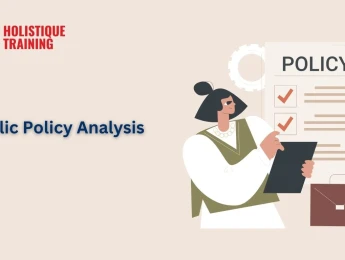An organisation can have many great features, systems, and employees, but that does not guarantee its success. Effective leadership and supervisors are crucial within any business. Without them, an organisation is bound to lose productivity, fall behind, and be drowned out in the market.
A supervisor who has developed the necessary organisational skills is a strong asset to any business. They will be able to appropriately create visions, set goals and objectives, effectively communicate with their team, and effectively prioritise and delegate tasks to those most suitable. They will also be able to maintain and monitor productivity to ensure all business and customer needs are being met.
Not only are supervisors in place to meet business needs, but they are also responsible for maintaining a positive work environment. They must ensure that all employees remain dedicated to their roles and that their personal needs are being met so that they can continue working to the best of their abilities. Supervisors will constantly monitor progress and offer coaching to those who require it, and create rewards and incentives to encourage team members to always strive for improvement.
Upon completion of this course, participants will be able to:
- Understand the importance of organisational skills within an organisation.
- Review methods and techniques to maintain organisation.
- Achieve measurable improvements in leadership performance.
- Analyse the implications of poor organisational skills.
- Inspire employees to perform towards an organisational vision.
- Assess the necessary skills to be an effective supervisor.
- Manage difficult employees and situations without it impacting productivity.
- Create an environment that manifests productivity.
- Generate employee buy-in for change.
- Provide coaching and mentoring to encourage others to improve organisational skills.
This course is designed for anyone wishing to develop their organisational skills or gain the skills necessary for future roles. It would be most beneficial for:
- Training and Development Managers
- Site Supervisors
- HR Personnel
- Senior Executives
- Team Leaders
- Regional Managers
- Operations Managers
- Sales/Marketing Supervisors
This course uses a variety of adult learning styles to aid full understanding and comprehension. Participants will review case studies of established supervisors to highlight their skills and how they have led them to success.
They will be provided with all the necessary tools to carry out learning exercises and develop their knowledge efficiently. Participants will evaluate their case studies to gain a full and comprehensive understanding of how organizational skills apply within the workplace. Furthermore, they will also partake in group discussions and activities where they can apply their new knowledge to their roles and demonstrate the practical and communicational skills learned.
Day 5 of each course is reserved for a Q&A session, which may occur off-site. For 10-day courses, this also applies to day 10
Section 1: Strategic Thinking
- Management vs leadership.
- Vital leadership competencies.
- Strategic, tactical, and operational thinking.
- Creating visions and establishing goals and objectives.
- Communicating visions to colleagues and employees.
- Defining internal and external organisational skills.
Section 2: Taking Personal Control
- Setting personal goals and visions.
- Evaluating personal views and aligning them with organisational values.
- Balancing personal goals with business goals.
- Identifying personal leadership and communication styles.
- Developing strong and reliable methods of communication.
- Admitting flaws and making plans for self-improvement.
Section 3: Merging Management and Leadership Competencies
- The history of management and leadership.
- How the role of management has evolved.
- Understanding and prioritising customer value.
- Engaging with employees.
- Ensuring employee capabilities.
- Optimising time management.
Section 4: Leading Teams
- Analysing employees’ behaviours and understanding their personal motivations.
- Key factors to successfully motivating people.
- Understanding the importance of passionate leadership.
- Building team rapport and establishing trust between one another.
- Providing incentives to encourage outstanding performance.
- Collaborating with employees in project completion.
- Encouraging input and initiative when decision-making.
Section 5: Interpersonal Communications
- The power of effective communication.
- Key factors influencing leadership communication.
- Efficient meetings and presentations.
- Resolving workplace conflicts before they impact productivity.
- Earning respect from employees and colleagues.
- Identify weak performers and provide coaching in a style that is effective for them.
Upon successful completion of this training course, delegates will be awarded a Holistique Training Certificate of Completion. For those who attend and complete the online training course, a Holistique Training e-Certificate will be provided.
Holistique Training Certificates are accredited by the British Assessment Council (BAC) and The CPD Certification Service (CPD), and are certified under ISO 9001, ISO 21001, and ISO 29993 standards.
CPD credits for this course are granted by our Certificates and will be reflected on the Holistique Training Certificate of Completion. In accordance with the standards of The CPD Certification Service, one CPD credit is awarded per hour of course attendance. A maximum of 50 CPD credits can be claimed for any single course we currently offer.
- Course Code MG2-164
- Course Format Classroom, Online,
- Duration 5 days














